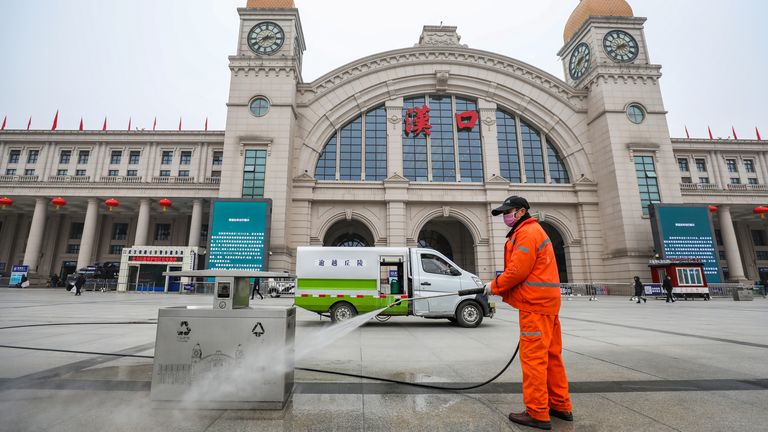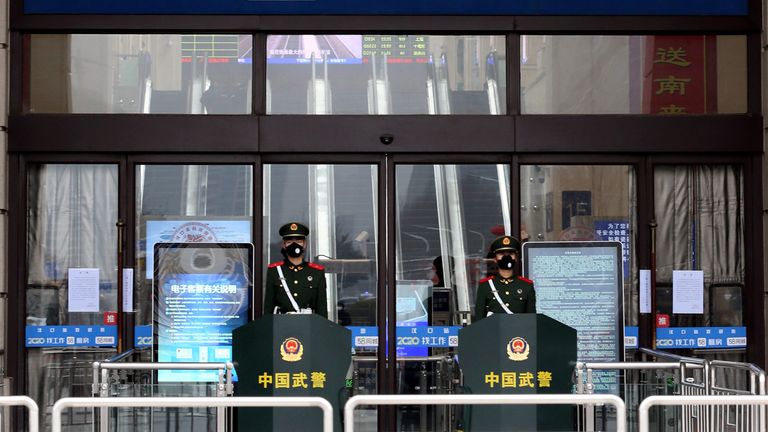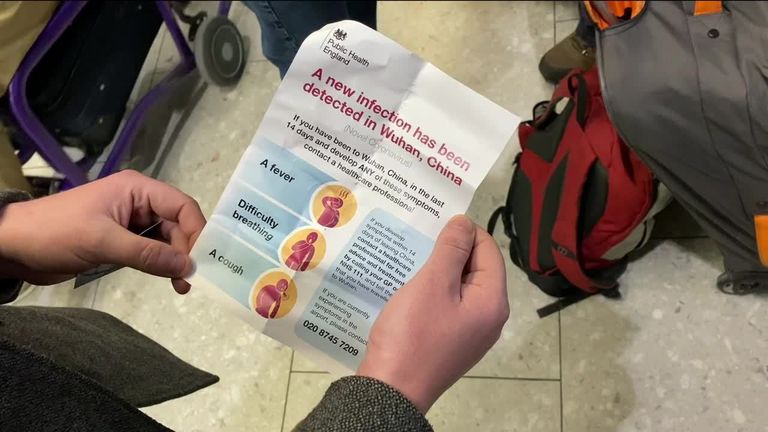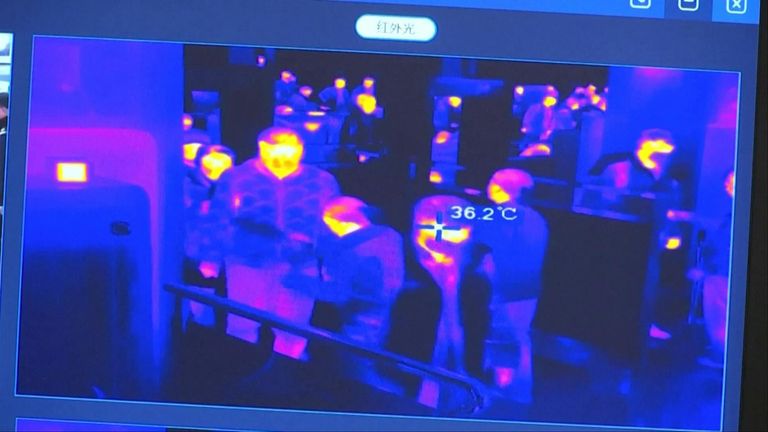China coronavirus outbreak: How do you lock down a city the size of London?
Checkpoints, roadblocks and the suspension of all urban transport bring a coronavirus-hit megacity of Wuhan to a standstill.
Thursday 23 January 2020 17:02, UK
Wuhan, a city of 11 million people, has been locked down by the Chinese authorities in a bid to stop the spread of a rapidly developing infection.
Most transport has been suspended and people have been told not to leave to slow the rate of infection from the coronavirus.
The government of the megacity says it has suspended outgoing flights and shut down all urban transport networks.
Wuhan, on the country's largest river, the Yangtze, a national thoroughfare, is one of the country's largest transport hubs; it is twice the size of Shanghai by land area, and eight times the size of Hong Kong.
State media reported that motorway toll booths around Wuhan would be closed, effectively cutting off the main routes out of the city.
Most people appeared to respond by staying at home, with state media footage from inside Wuhan showing the main Hankou rail station nearly deserted, with blocked gates, and similar scenes elsewhere.
Sky's Asia correspondent Tom Cheshire, who has been in Wuhan but has now left, passed soldiers with thermometers and security officials setting up what was expected to be checkpoints on the main roads.
Unverified videos appear to show masked health workers manning roadblocks on the arterial roads in and out.
More than 400 people are thought to have been confirmed with coronavirus in Wuhan, with most of the cases in China being in the city and the surrounding province of Hubei.
In Neighbouring Huanggang, a city of some 6 million people, a similar lockdown was being imposed.
Authorities ordered indoor entertainment venues including cinemas and internet cafes to close and were asking citizens not to leave other than under special circumstances, state media said.
They have announced they will suspend public bus and railway operations from midnight local time (4pm UK time).
Another nearby city, Ezhou, said on Thursday it had shut its train stations.
The novel coronavirus that has killed 18 people in Hubei appears to be moving quickly from person to person.
The number affected has risen from dozens in the middle of January to more than 500 in less than two weeks.
It is suspected that the virus jumped to humans from an animal sold in Wuhan's seafood market.
But numerous cases have now been found in people who have not visited the market - suggesting it is being transmitted from human to human.
The World Health Organisation has suspended its decision about whether to designate the disease an emergency.
:: Listen to the Daily podcast on Apple Podcasts, Google Podcasts, Spotify, Spreaker
China's government however is taking urgent action amid rumours of panic in cities like Hong Kong, ahead of the Chinese New Year.
Millions of people usually go on the move during the annual festival that has been called the biggest migration of people on the planet.
The general population has been taking precautions to protect itself, with Chinese face mask manufacturers reopening factories shut for the national holiday, promising workers up to four times their normal wages.
Firms from drugmakers to makers of thermometers have also said they would step up production.
In addition to China's own actions, airports around the world are introducing screening for new arrivals, using electronic equipment to monitor the temperatures of those coming from abroad.
Flight tracking website FlightRadar24 showed that as of 6am UK time on Thursday, 184 Wuhan flights, or 60% of the departures listed for the day, had been cancelled.
The crisis appeared to be having an impact on tourism to China, with South Korea's largest travel agency saying that cancellations of trips to the country increasing about 20% this week year on year.







